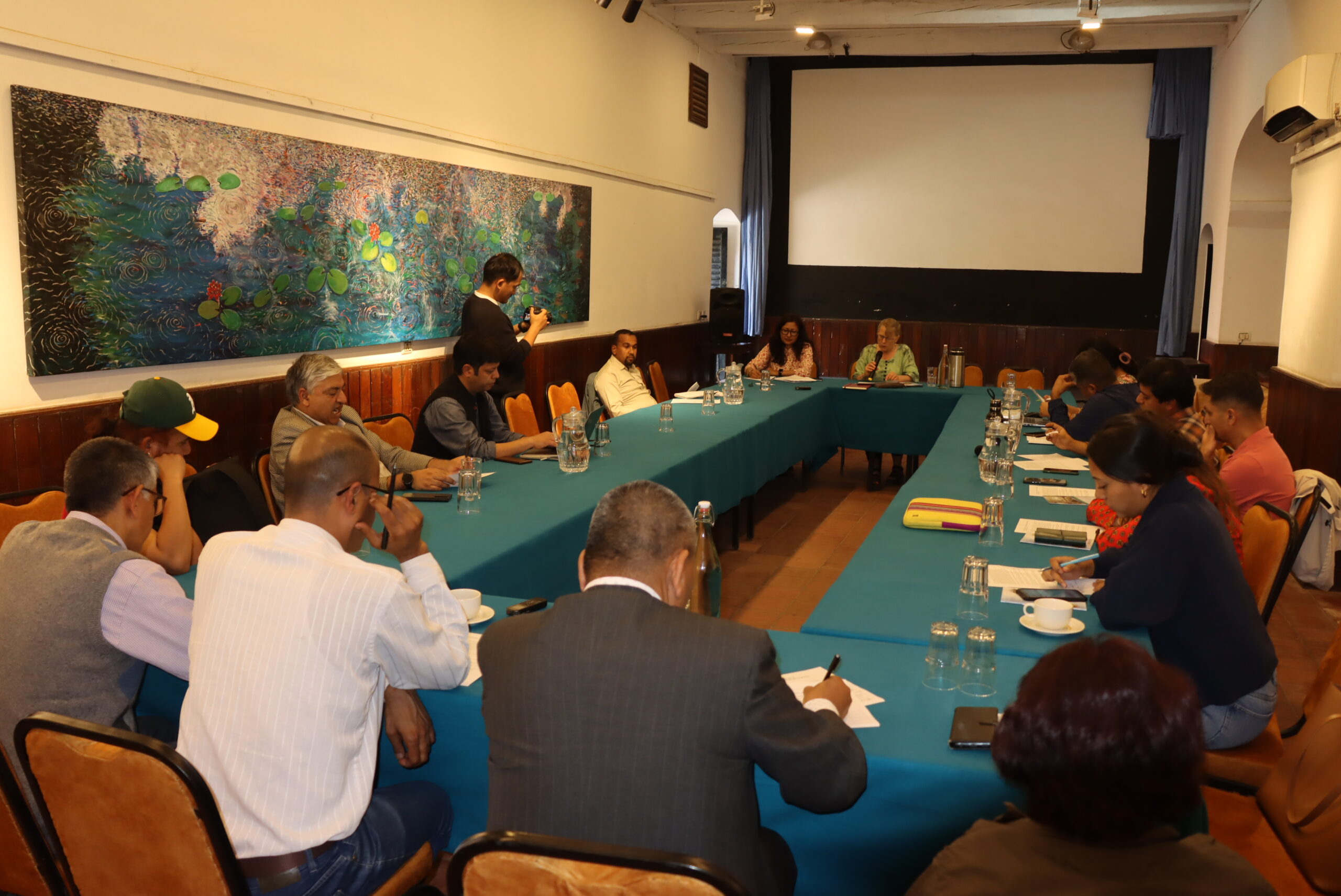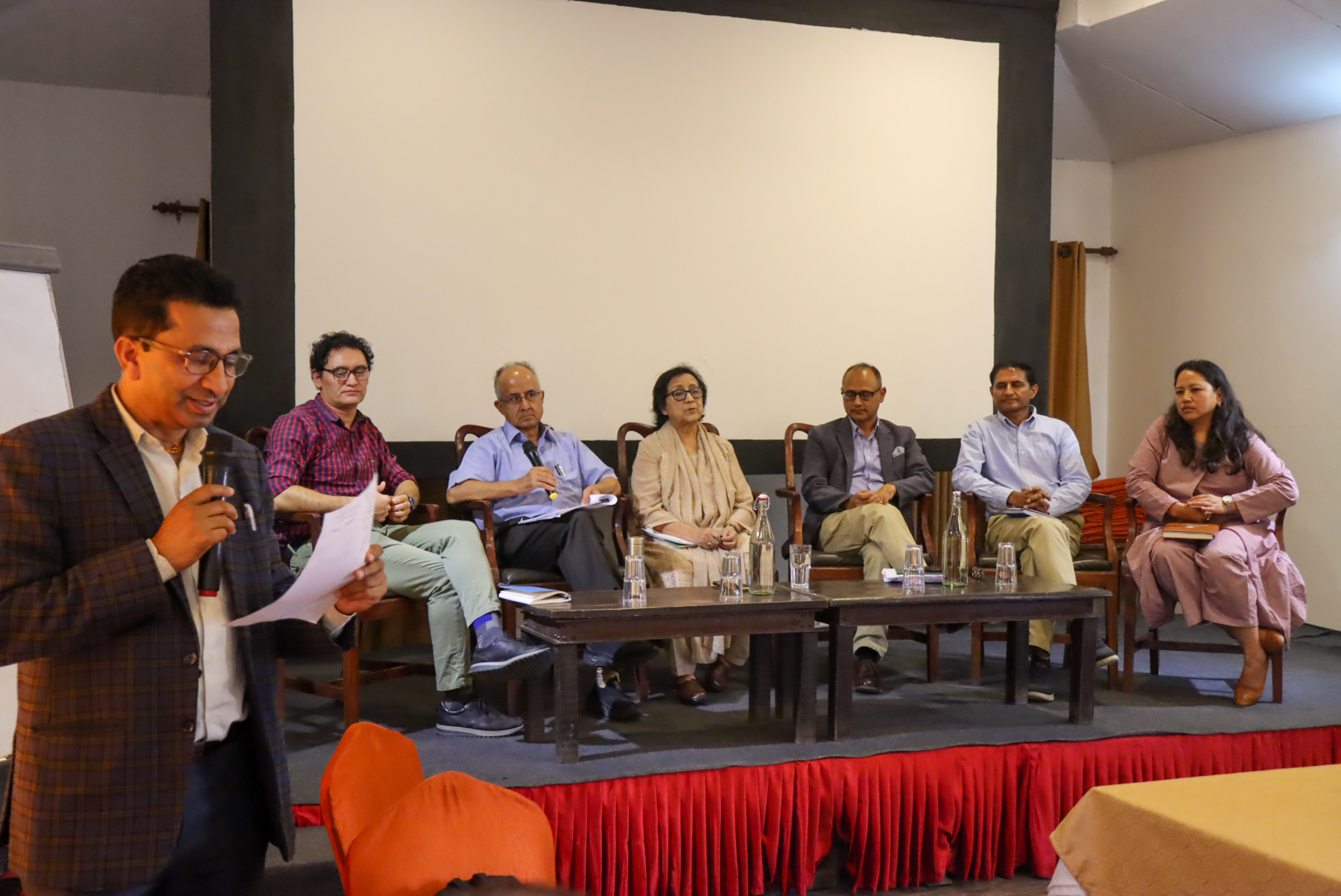On May 3rd, 2024, the Southasia Institute of Advanced Studies (SIAS) held the Future Himalayan Research Seminar, featuring a series of insightful presentations and dynamic discussions aimed at promoting critical discussions on emerging issues: changing human-wildlife relations, reimagining the roles of community forestry, and sustenance and prospects of forest-based enterprises in the changing socio-economic contexts of Nepal.
Dr. Dil Khatri, Executive Director and Senior Researcher at SIAS, initiated the seminar with a presentation entitled “Wild-Animals are Becoming the Pest: Socio-Ecological Transitions and New Human-Wildlife Relations in the Nepal Himalaya” focusing on the escalating human-wildlife conflicts in the Nepal Himalaya. He highlighted the alarming statistic that wild animals, particularly monkeys, are responsible for up to 60% of crop losses in the region. He also underscored the policy response is limited and technical for the compensation. Dr. Khatri emphasized the urgent need for transformative forest management policies to address these socio-ecological changes and improve forest-people relations. Similarly, the second presentation by Dr. Dilli Prasad Poudel, entitled “Neoliberal Community of Community Forestry in Nepal: A Sociological Drift” explored the sociological shift within Nepal’s community forestry. He discussed the decreasing dependency on forests, with communities increasingly seeking off-farm activities. Dr. Poudel stressed the importance of aligning community forest management with socio-economic changes to ensure the well-being of local populations. He advocated for a restructuring of community forestry to support evolving livelihood options and maintain a strong connection between forests and human welfare.
Ultimately, Dr. Govinda Poudel concluded the presentations entitled “Promised Much: Delivered Little: A Story of Forest-Based Enterprises in Nepal” with an analysis of the underperformance of forest-based enterprises in Nepal. He disclosed the significant gaps in the conceptual frameworks of the Industrial Enterprise Act 2076 and the National Forest Act 2075, which hinder the effectiveness of these enterprises. Dr. Poudel highlighted the complex procedures and policy hurdles that complicate the registration and operation of forest-based businesses, calling for streamlined processes to foster enterprise growth and sustainability. Each presentation was followed by insightful discussions.
Dr. Anushiya Shrestha, in her closing remarks, expressed heartfelt gratitude to all participants for their invaluable contributions. She emphasized the significance of the insights shared during the seminar.




